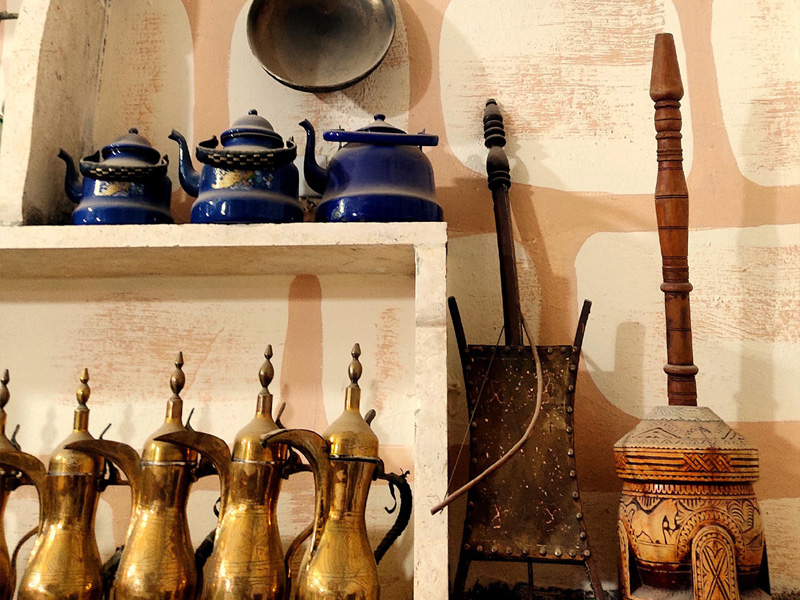Customs and Traditions of The Al-Sada Al-Bakara Tribe in Aleppo
Issue 62

Dr. Abdo Ahmad, Professor at Aleppo University
The Aleppo governorate is home to the Al-Sada Al-Bakara tribe, whose folkloric practises are the focus of this study.
Although the people of this tribe have done a good job of keeping their traditions alive by teaching them to their children and grandchildren, contact with city dwellers has led to the abandonment of some of these customs, which the researcher felt needed to be documented in this study for fear of extinction.
Among the many traditions that tie the Al-Sada Al-Bakara clan to its Prophetic forebears is the annual celebration of the Prophet's birth on the twelfth of Rabi' Al-Awwal "May Allah's peace and blessings be upon him and his family,", when the finest prayers and greetings are offered to him and his family.
One form of commemoration involves members of the Bakara tribe distributing sweets to the crowd as they set up tents in the village in preparation for religious singers to perform prophetic songs whose words are rich in praising the Prophet and his family.
During the month of Ramadan, members of the Al-Sada Al-Bakara tribe follow similar customs to the rest of the population in Aleppo governorate. During the whole holy month of Ramadan, blessings are exchanged among members of the same family and members of the same tribe as soon as the crescent of the month appears. The chief of the Bakara tribe extends his congratulations to the sheikhs of the tribe. The al-Sada al-Bakara are a prominent group inside the province of Aleppo. The Islamic faith and the tribe's centuries-old cultural heritage influenced many of the rites and customs practised by the tribe's members.
The cultural folklore of this tribe is in danger due to leaving the village life and heading towards cities, namely the city of Aleppo. As a result, this inspired their desire to live a more civilised life following the customs and traditions of the people of Aleppo. Hence, making it necessary to record the cultural and folkloric knowledge about this tribe in order to ensure its survival.







































































